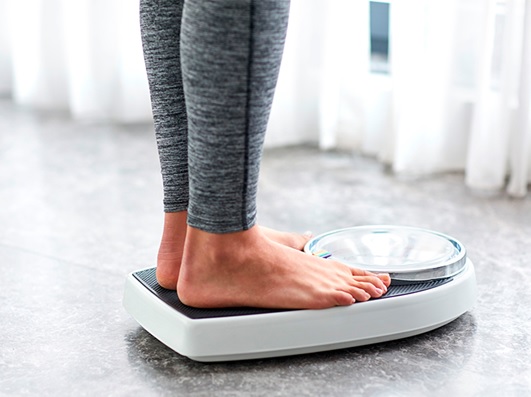
In New Zealand today we don’t have a weight loss problem… We have a problem keeping it off. Plenty of us successfully drop fat through crash diets and hard exercise. Unfortunately we tend to revert back to our old habits after our initial motivation is lost and put it all back on again. Instead of signing up for another eight week challenge, read this article to learn how to keep the unwanted fat off forever. There are a few habits that people who maintain a healthy body weight all have in common. Implement some of these and you’ll no longer worry about that fat coming back.
Pick A Diet That Doesn’t Feel Restrictive
No one likes being told they can’t have something. If you say “I will never eat chocolate again”, chances are you’ll start craving it more than ever. People who lose weight and successfully keep it off stick to a way of eating that they enjoy. In order to lose weight, you must be taking in less calories than you burn. Regardless of whether you eat low carb, go vegan, do intermittent fasting or track your macros, all diets work by reducing your caloric intake. This means the best diet for you is the one that you can stick with. Dieting aggressively will only get you short term results. If you lose weight by cutting out carbohydrates but you feel restricted and sad, you won’t adhere to this way of eating for long. Do your research, find out how to implement your calorie deficit in a way that excites you and stick to it. The biggest predictor for long term fat loss is dietary adherence. You know the saying ‘consistency is key’? Well it couldn’t be more true. If your current diet is not one you can maintain for the rest of your life then it is likely not right for you.

Don’t Rely On Just Diet
Exercise is great for many things. Stress levels, muscle mass and cognitive function all improve if you workout regularly. If the benefits of exercise were available in pill form, everyone would be downing this drug. It is theoretically possible to lose weight through diet alone but you are far more likely to keep it off if you live an active lifestyle. This is both obvious and supported by research. Many studies compare diet only with diet and exercise interventions for fat loss. Participants who exercise on top of eating less calories are less likely to regain their weight compared to those who only change their eating habits. Sticking to a low calorie diet will result in short term fat loss but this is not a sustainable approach. Find an enjoyable activity you can do regularly. Whether that be yoga, lifting weights, walking or tennis. Any movement that becomes part of your daily routine will be beneficial.

Self-Monitor
Don’t fear the scales. Research tells us that you are more likely to lose weight if you weigh yourself daily. One reason our weight creeps up is because we don’t monitor it. Studies show that those who weigh daily achieve more fat loss than those who weigh every five days (or not at all). This could be because a daily weigh in acts as a reminder to keep practising healthy behaviours. We know that what gets measured gets managed. If you’re in the habit of jumping on the scales every morning, you are statistically more likely to lose weight. Stack the odds in your favour and see if weighing daily helps you stay on course.

Have People In Your Corner
Humans are social creatures and we thrive when we have the support of others. Studies show that those who have regular follow up appointments with a dietician after their initial fat loss intervention are more likely to maintain their lower body weight compared to those who go off on their own. As much as we would like to be self-reliant, external support makes a world of a difference. Likely because we subconsciously seek approval from others. It doesn’t matter if this support comes from friends, family, a nutritionist or a personal trainer. Being around people who encourage you to make healthy decisions is invaluable. They say you are the average of the five people you spend the majority of your time with. Well if you surround yourself with those who overeat and sit on the couch all day, you are likely to do the same. One of the best things you can do for your body is to hang around other people who practise healthy habits. Your vibe attracts your tribe. Keep your friends close and your fit friends closer.
Eat Slowly
Eating quickly is a characteristic that overweight people tend to have in common. Those who hoof down their meals are 115% more likely to be obese than those who take time to chew. This is why competitive eaters eat at a rapid pace. The faster you shove the food down, the less time your body has to realise that it is full. Studies affirm that eating slowly results in less total calories consumed and greater meal satisfaction. Wolfing down your meal is not good for physical digestion or psychological enjoyment. Chewing your food slowly improves absorption and makes your food last longer. Changing this one behaviour could be the only thing you need to improve your health. Next time you sit down for a meal, be mindful of how swiftly you munch. Chewing speed may seem trivial but the research shows it matters.

Conclusion
Modest weight regain is common for those who have dropped a lot of body fat. This doesn’t mean you are doomed to put it all back on and more. Your body weight is a reflection of your daily habits. Exercising often, eating slowly and being a part of a supportive community are practises that will help you maintain an ideal body weight. Instead of stressing about weight regain, channel your focus towards your daily habits. Nailing these simple things is all you need to maintain a healthy level of body fat for the rest of your life.
